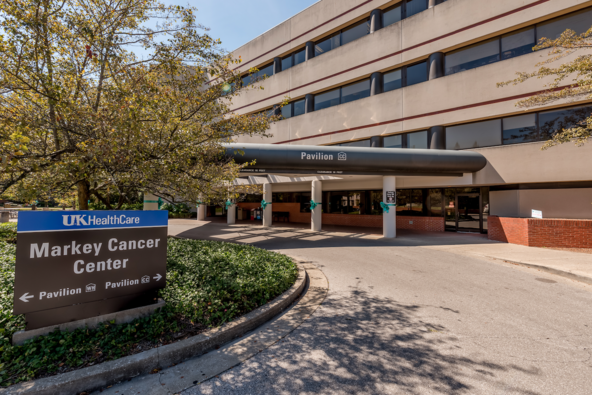Markey, Other Top U.S. Cancer Centers Urge Resumption of HPV Vaccinations

The University of Kentucky Markey Cancer Center has partnered with other National Cancer Institute (NCI)-designated cancer centers to issue a joint statement urging the nation’s physicians, parents and young adults to get the human papillomavirus (HPV) vaccination back on track.
Dramatic drops in annual well visits and immunizations during the COVID-19 pandemic have caused a significant vaccination gap and lag in vital preventive services among U.S. children and adolescents—especially for the HPV vaccine.
Nearly 80 million Americans – 1 out of every 4 people – are infected with HPV, a virus that causes several types of cancers. Of those millions, more than 31,000 will be diagnosed with an HPV-related cancer this year. Despite those staggering figures and the availability of a vaccine to prevent HPV infections, HPV vaccination rates remain significantly lower than other recommended adolescent vaccines in the U.S. Even before the COVID-19 pandemic, HPV vaccination rates lagged far behind other vaccines and other countries’ HPV vaccination rates.
According to 2017 data from the Centers for Disease Control (CDC), fewer than half (49%) of adolescents were up to date on the HPV vaccine. Those numbers have declined dangerously since the pandemic:
-
Early in the pandemic, HPV vaccination rates among adolescents fell by 75%, resulting in a large cohort of unvaccinated children.
-
Since March 2020, an estimated one million doses of HPV vaccine have been missed by adolescents with public insurance— a decline of 21% over pre-pandemic levels.
“The COVID-19 pandemic has interrupted the delivery of key health services for children and adolescents, including HPV vaccination,” said Dr. Mark Evers, director of the UK Markey Cancer Center. “Although Kentucky’s HPV vaccination rates have consistently ranked near the bottom nationally, we had seen some improvements in HPV vaccination rates in Kentucky children age 13-17 in more recent years. We don’t want lose that progress – HPV vaccination is cancer prevention, and it means more lives saved.”
The U.S. has recommended routine HPV vaccination for females since 2006, and for males since 2011. Current recommendations are for routine vaccination at ages 11 or 12 or starting at age 9. Catch-up HPV vaccination is recommended through age 26.
NCI Cancer Centers strongly encourage parents to vaccinate their adolescents as soon as possible. The CDC recently authorized COVID-19 vaccination for 12 to 15-year-old children allowing for missed doses of routinely recommended vaccines, including HPV, to be administered at the same time. NCI Cancer Centers strongly urge action by health care systems and health care providers to identify and contact adolescents due for vaccinations and to use every opportunity to encourage and complete vaccination.
“As parents, it’s important for us to know that most doctor’s offices are back to their normal availability of appointments now, and they have pandemic safety protocols in place to keep them and their children safe when they come into the office,” said Pam Hull, Ph.D., associate director of population science and community impact at Markey. “So we encourage parents to call their children’s doctor right away to make an appointment and get them caught up on their checkup and vaccines – it’s in our hands as parents to protect our children from cancer with HPV vaccine.”
More information on HPV is available from the CDC and National HPV Vaccination Roundtable. This is the third time that NCI-designated cancer centers have come together to issue a national call to action. These cancer centers unanimously share the goal of sending a powerful message to parents, adolescents and health care providers about the importance of HPV vaccination for the elimination of HPV-related cancers.
Credits
Allison Perry (Public Relations & Strategic Communication)

